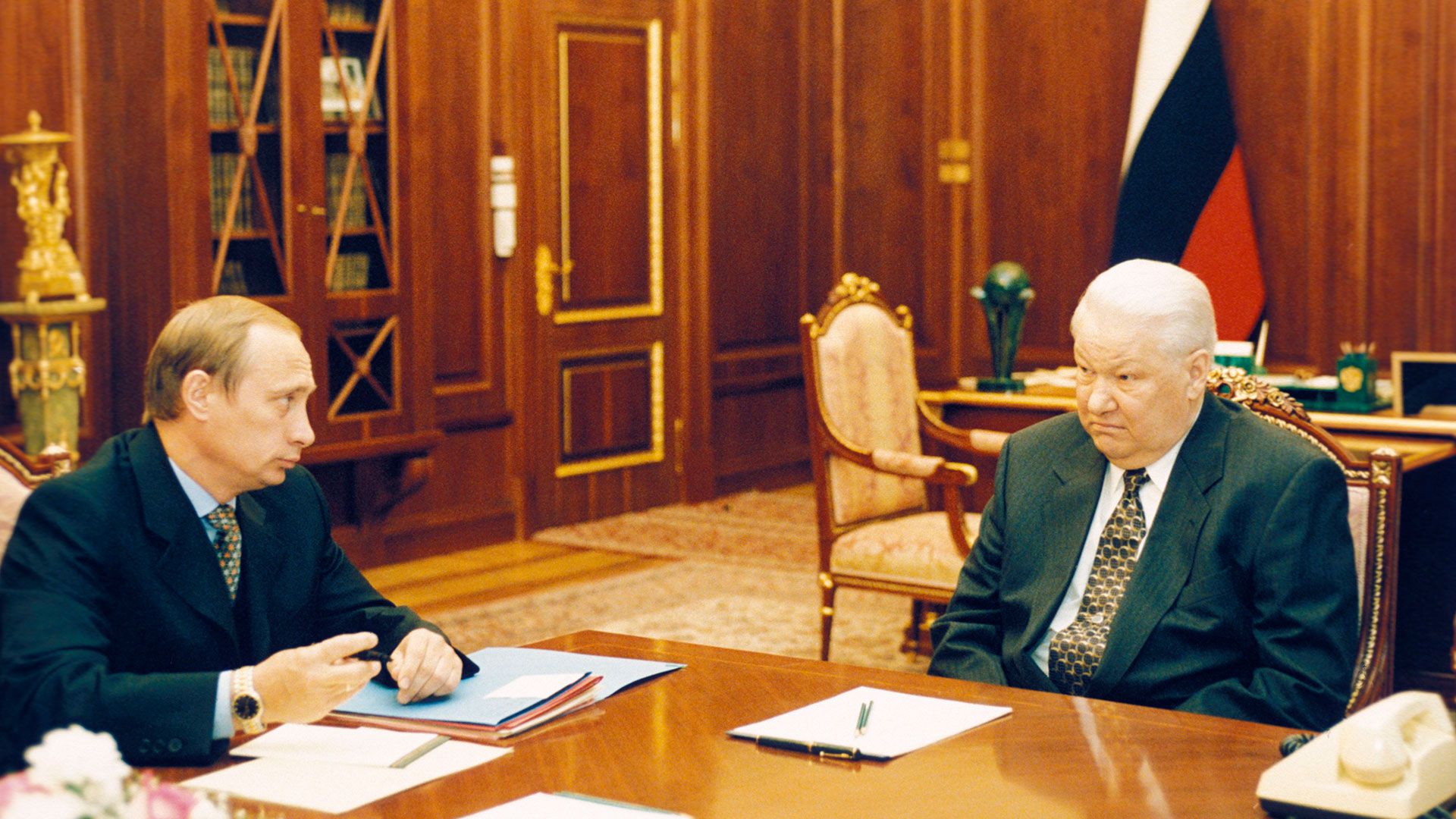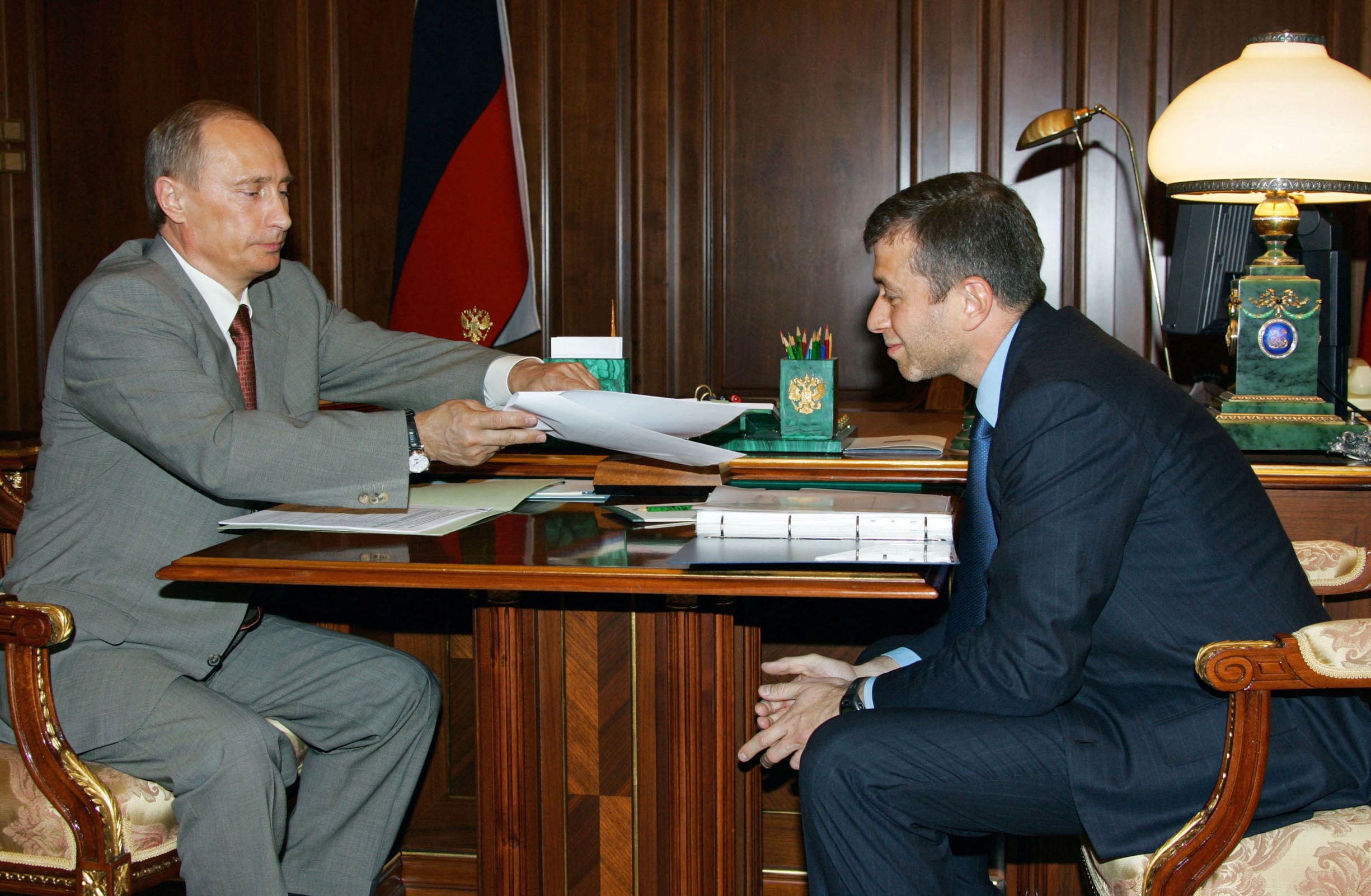:quality(85)/cloudfront-us-east-1.images.arcpublishing.com/infobae/HII47BK3LREAZCERKWTSTYZ3BI.jpg 420w)
During the Soviet Union they were not called oligarchs. With responsibilities in the totalitarian system and planned with objectives to be achieved - even at the cost of forced labour and ruthless human engineering - they had great privileges if they managed not to be deleted from the system (and from the photos, which were deleted from the official ones from time to time). They were the members of the Nomenklatura.
After seventy years and the disaster in Afghanistan (1978-1992), the Soviet Russian Empire showed its breach by trying to set up a satellite government and confront the mujahideen, then with the support of Muslim countries and, things change fast, the United States with decisive assistance from afar. The big bear was very heavy and arthritic.
It made a planetary noise when the Soviet Union fell. Vladimir Putin, prominent as a KGB agent in Dresden, Germany, was caught in his underpants. He called for help and fight, but Moscow did not answer his desperation, his frustration. It was already Gorbachev, the Glasnost, the necessary transformation. No one answered his phone. Agent Putin didn't forget it. He doesn't forget it.

Between Gorbachev and Yeltsin, free stone. The great disorder and the opportunities of those who saw the opportunity to storm a part of the bureaucratic state, unappealable. The alternative was served. While Putin was patiently and sagaciously crafting a conservative order, capitalist in its own way, imperial capable of rebuilding what was lost, the oligarchs grew. The distribution of the Soviet shipwreck made millionaires almost unreal,
Abramovich, today 56 years old with seven children, started with the 2000 greens he received as a gift when he married, and set up small private companies, banned even but with the screws shot for bribery and lubricant. Born into a Judeorussian family, the mother died when she was 18 months old and not later the father died in a construction accident. A guy took care of it, but he didn't avoid going through two orphanages. It moved fast, in larger investments and — friends are the friends — approached the top: it came to be housed in one of the Kremlin departments, and Putin's, formed the Sibneft oil company in 250 million and managed to sell 76 percent to the Russian State in 3,300, in bid with a Chinese company that was pushed and pushed away from the palace. The cheerful Roman was already an oligarch like the people. His equity is measured at well over 15 billion dollars, 60 on the Forbes list. It was not only oil, but also aluminum with a leading company in the world. And, well, all kinds of issues that are unknown, although it is more than likely that Putin will not ignore them and that that club of millionaires that Abramovich integrates are his members. For a US Senate commission, Vladimir Putin is the richest man: $100 billion or the equivalent of any other powerful currency. Take it or leave it, but in any case it is reasonable that Ukraine is not for the economy or for any patrimony — let's say so — but because of revenge and resentment, the bleeding bitterness of the pain of no longer being.
Crazy about football.

From rebenok (boy if we bring our phonetics to Russian) Abramovich dreamed of football. He put a lot of beans to buy Chelsea, an old English club founded in 1905, loved by its fans and the sport itself. In passing, he was able to settle in Britain with a spacious, friendly, ever-renewable residence, an endless card, everything. The high quality of life there worked wonders for our oligarch. Four hundred hectares in Sussex, a house in Kensington, London, which is priceless and now, with the siege of the wealthy Russians as a sanction to war, can be requisitioned for the use of Ukrainian refugees, the construction of their yachts. Wandering from port to port to avoid embargoes, he touched Barcelona and soon headed towards Montenegro. There are several. The largest, pearl of Roman's fleet, cost 550 million and is 162.5 meters long, more than a block and a half, with two helipads, armored doors, anti-missile radar, beauty salons, swimming pools and a submarine. It has a constant crew of 63 sailors, kitchen staff, a capacity for guest travelers of about fifty chosen ones.
Crazy about football, it was many times. The Chelsea blues, from their box, saw them win a Champions League. He had coaches like Mourinho and Ranieri. “He looked like a boy, happy with the club.” Great ones like Gullit, Gianluca Vialli, Drogba. Put in a trust these days, he will do his best to place it. You cannot sell tickets, the souvenir shop is closed, you are prevented from hiring players or transferring others. A certain offer from a Saudi group, it is murmured, is willing to put no less than 10 billion, which is a silver.

Good oligarch, bad oligarch.
For a time he was designated as the head of a frozen and deserted Russian region, with psychiatric loneliness and endemic alcoholism. He did a valuable job in education, health, communication and feeding with pounds from his faltriquera. With Israeli nationality, as well as Russian and Portuguese, he promotes the fight against defamation and makes donations that earned him the Abramovich neighborhood in Tel Aviv, from where he leads the initiative to bring together 1,000 Palestinian and Israeli teenagers to train and play football together.
For the Financial Times correspondent in Moscow, there can be no doubt that oligarchs are moles distributed by the Russian factor in the Western world. Twenty-four hours ago, Putin angrily demanded that, without sticking to his country instead of what we would call cutting themselves, with their ships, their banquets, their “oysters” (he said), their expansions without reporting or linking to the Russian Federation, they will be traitors, scum worthy of being spat out. Careful then, it was very serious and all the rage.
Abramovich will have to keep the umbilical cord or choose the dangerous play of washing his hands: “Me? Oligarch”.
KEEP READING
